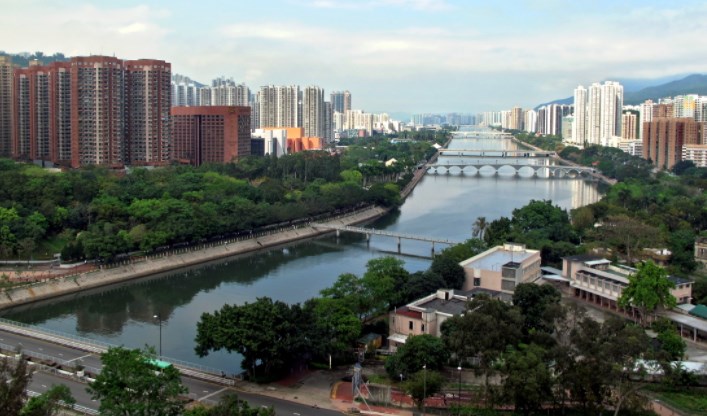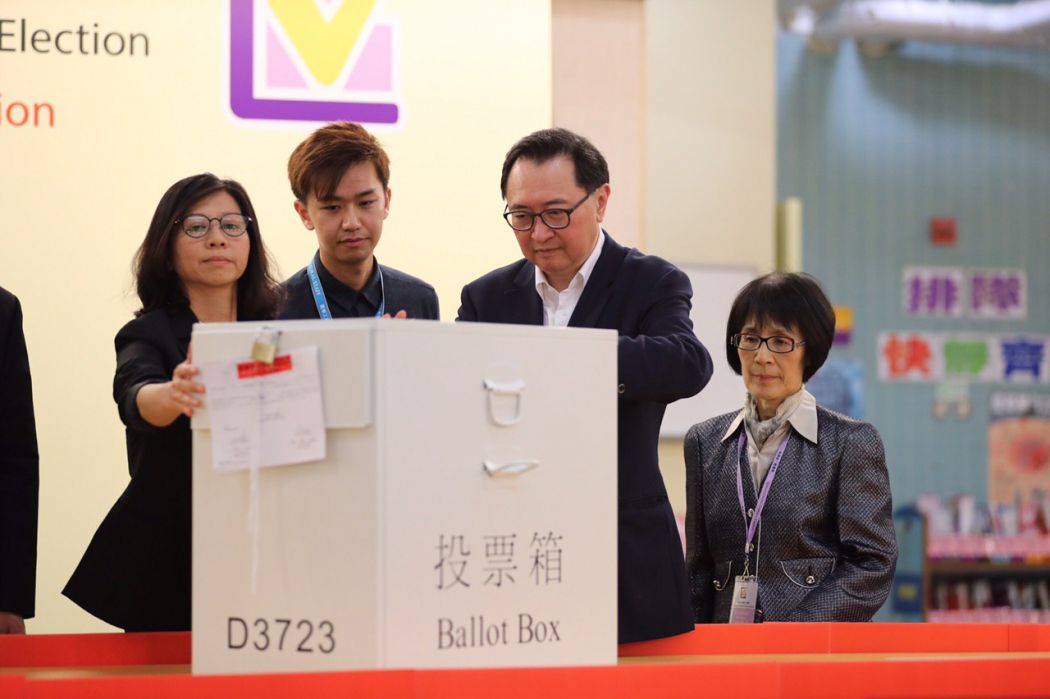We often hear about politicians’ concern for the grassroots. A word this week about the rest of the grass.
Grass is not a native plant in Hong Kong and, as every groundsman and bowling club knows, keeping up any sort of a lawn requires a certain amount of continuing care and maintenance.

The patch of grass I visit at least twice a day – for dog-related reasons – provides an interesting barometer of how much care and maintenance is being lavished on municipal vegetation in our part of the world.
When Sui Wo Road was first built in the 70s the adjacent hilltops were lopped off and used to turn the Shing Mun River from a series of meanders surrounded by paddy fields into a straight line surrounded by housing estates. The resulting series of platforms was used to accommodate two schools, the Baptist University staff quarters, and several housing estates, of which ours is one.
The builders of our estate did not need the whole platform, and left a strip of grass round the outside of two sides of the estate, varying in width from about five yards to about 20. A footpath goes about half way round and leads to the Lions Lookout, a popular spot for tourism (in daylight) and romance (after dark).
When we moved into the estate this strip was still plain grass and trees. The only other concession to landscape design was a clump of large rocks which the developers had, I suppose, considered too large to be trucked down to the valley. They were left in a little cluster, a half-hearted attempt at “Japanese garden”.

In the ensuing years there were attempts at further adornment. A lot more trees were planted, mainly of a type ill-chosen for a typhoon-swept hilltop. Few of them have survived. A hedge was inserted between the edge of the grass and the uncouth hillside which starts beyond it. Some ornamental bushes were also installed around the rocks.
Then about four years ago something went wrong. The trimming of the grass lapsed to two or three times a year. Between mowings it grew long and lank: a jungle deep enough to conceal my dog. We were warned of snake sightings.
The hedges were also neglected and some of the bushes left to their own devices turned into small trees. Some of the “hedges” were now big enough to conceal me. Fly tippers took the hint and piles of abandoned building debris appeared.

Then an interesting change. A mere day or two after the 2019 District Council elections there was a burst of activity. The grass was trimmed, and the bushes were cut back more than they had been for a long time. An abandoned motorcycle which had been lying behind the rocks for years was finally taken away.
In the ensuing year, the up-keep of the area returned to the old standard. The grass was cut and the bushes trimmed every month or so, which is necessary in the summer. Abandoned rubbish was cleared, unruly bushes cut back. An unnecessary fence which had been quietly collapsing was tidied away.
Then another change. Like other district councils ours has been gutted by the government campaign to exclude from public office everyone but its admirers. Last time I looked at the council’s website half of the councillors had gone, including the one who represents us. There may have been more since.

Those who remain are clearly not as influential as they used to be. After all, if the Chief Executive announces that she is going to ignore the district councils we can hardly expect her underlings to take any notice of them. And, to my surprise and distress, this has been immediately reflected in the standards of municipal maintenance. The grass grew long and rank again, the bushes ran wild, snake warnings resumed.
The grass was finally cut last week. I am not sure if this was the first time since March or the first time this year but it was clearly overdue. The bushes were pruned, but the ones which are not on the way to the lookout point were left to do as they pleased.

I suppose there may be an entirely innocent explanation for the variation in grass maintenance round our way, but it seems to me that this highlights a problem which has been neglected.
No doubt it was very inconvenient to have large numbers of unruly district councillors potentially voting in the “election” of the next Chief Executive. But the changes in the election system have fixed that. And the district councils did do other things.
CE Carrie Lam has defended her (plainly unlawful) decision to leave retiring or disqualified district councillors unreplaced, saying that the government has other ways of consulting public opinion. But providing the government with a source of public opinion on major matters was not the councils’ only function.

Their main job was to supply a way in which local wishes and thoughts could be translated into local policies and actions. This cannot be done by some replacement group of people who, owing their elevation to an office of prestige and profit to the government, will feel bound by both gratitude and self-interest to support it.
It is true that, before 2019, some councils did not make a very good job of this. Some councillors concentrated on securing repeated electoral success and adopted a “bread and circuses” approach in which electors were plied with food and drink (paid for by the councillor) and festivals and competitions (paid for from public funds).
One-party rule often ends in cronyism, complacency and corruption. In fact, the change of regime in 2019 might have done everyone good – at a local level. But our government seems to have decided to abandon all attempt at elected local administration. This will, ironically, get us back to the colonial pre-1980s arrangement, but without the Urban Council.
Well it’s an ill wind blows nobody any good. Local snake spotters can be offered a happy hunting ground in a month or two. Take the 69K minibus and ride to the end of the line. Wear boots.
Support HKFP | Policies & Ethics | Error/typo? | Contact Us | Newsletter | Transparency & Annual Report | Apps
| HKFP is an impartial platform & does not necessarily share the views of opinion writers or advertisers. HKFP presents a diversity of views & regularly invites figures across the political spectrum to write for us. Press freedom is guaranteed under the Basic Law, security law, Bill of Rights and Chinese constitution. Opinion pieces aim to point out errors or defects in the government, law or policies, or aim to suggest ideas or alterations via legal means without an intention of hatred, discontent or hostility against the authorities or other communities. |
Help safeguard press freedom & keep HKFP free for all readers by supporting our team

More HKFP OPINION:
HKFP has an impartial stance, transparent funding, and balanced coverage guided by an Ethics Code and Corrections Policy.
Support press freedom & help us surpass 1,000 monthly Patrons: 100% independent, governed by an ethics code & not-for-profit.










